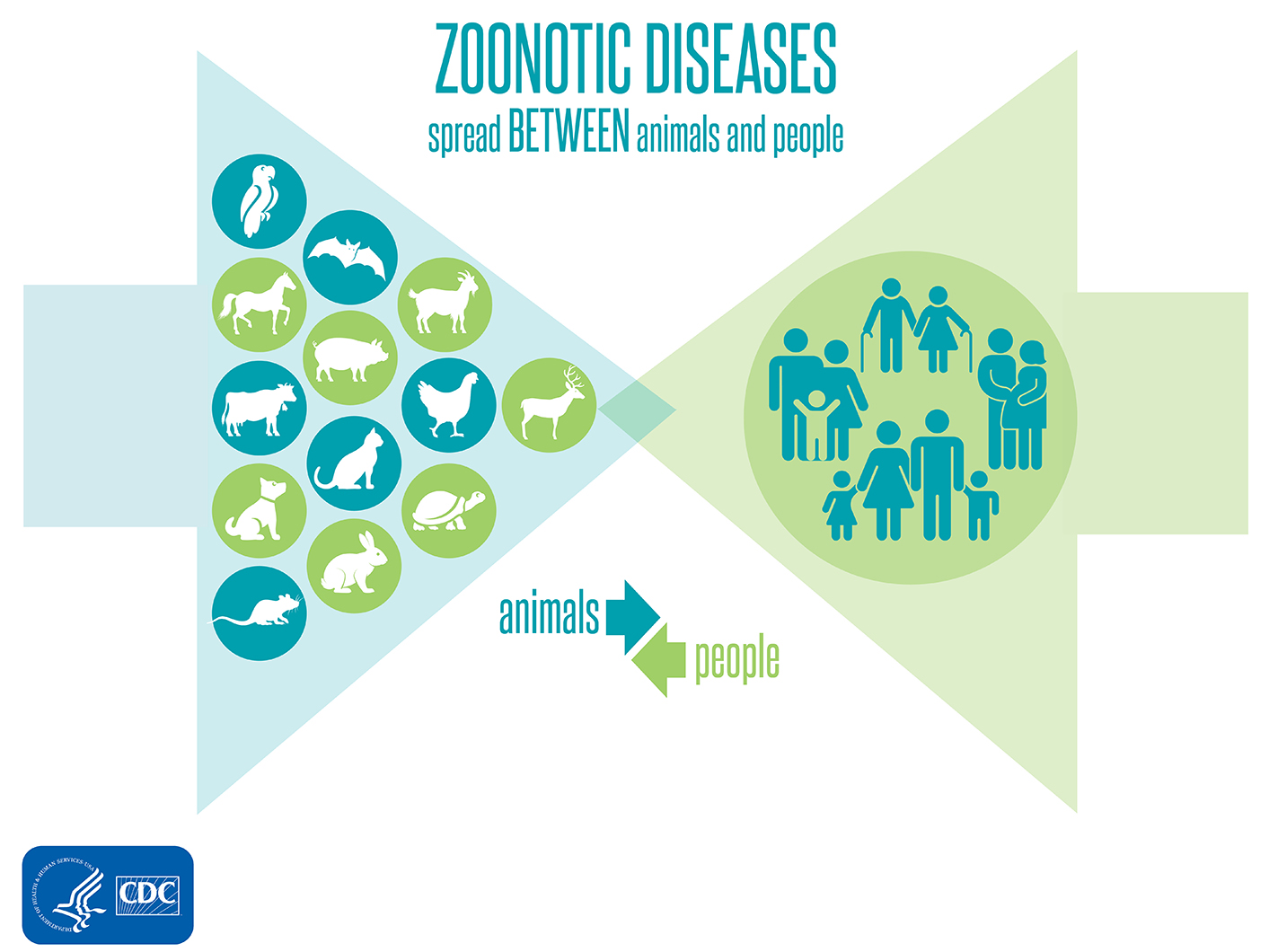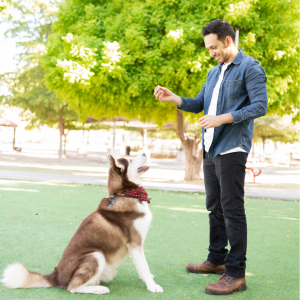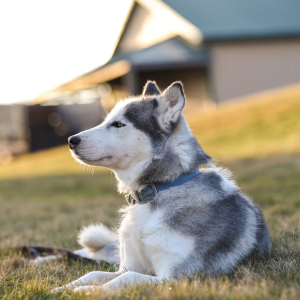Zoonotic diseases (also known as zoonoses) are caused by germs that spread between animals and people.
How do germs spread between animals and people?

Because of the close connection between people and animals, it’s important to be aware of the common ways people can get infected with germs that can cause zoonotic diseases.
These can include:
Direct contact: Coming into contact with the saliva, blood, urine, mucous, feces, or other body fluids of an infected animal. Examples include petting or touching animals, and bites or scratches.
Indirect contact: Coming into contact with areas where animals live and roam, or objects or surfaces that have been contaminated with germs. Examples include aquarium tank water, pet habitats, chicken coops, barns, plants, and soil, as well as pet food and water dishes.
Vector-borne: Being bitten by a tick, or an insect like a mosquito or a flea.
Foodborne: Each year, 1 in 6 Americans get sick from eating contaminated food. Eating or drinking something unsafe, such as unpasteurized (raw) milk, undercooked meat or eggs, or raw fruits and vegetables that are contaminated with feces from an infected animal. Contaminated food can cause illness in people and animals, including pets.
Waterborne: Drinking or coming in contact with water that has been contaminated with feces from an infected animal.
Who is at a higher risk of serious illness from zoonotic diseases?
Anyone can get sick from a zoonotic disease, including healthy people. However, some people are more at risk than others and should take steps to protect themselves or family members. These people are more likely than others to get really sick, and even die, from infection with certain diseases. These groups of people include:
- Children younger than 5
- Adults older than 65
- People with weakened immune systems
- Pregnant women
What can you do to protect yourself and your family from zoonotic diseases?
People can come in contact with animals in many places. This includes at home and away from home, in places like petting zoos, fairs, schools, stores, and parks. Insects, like mosquitoes and fleas, and ticks bite people and animals day and night. Thankfully, there are things you can do to protect yourself and your family from zoonotic diseases.
- Keep hands clean. Washing your hands right after being around animals, even if you didn’t touch any animals, is one of the most important steps you can take to avoid getting sick and spreading germs to others.
- Always wash your hands after being around animals, even if you didn’t touch the animals.
- Many germs are spread by not washing hands properly with soap and clean, running water.
- If soap and water are not readily available, you can use an alcohol-based hand sanitizer that contains at least 60% alcohol.
- Because hand sanitizers do not get rid of all types of germs, it is important to wash your hands with soap and water if they are available.
- Know the simple things you can do to stay safe around your pets.
- Prevent bites from mosquitoes, ticks, and fleas.
- Learn more about ways to handle food safely—whether it’s for yourself or your family, your pet, or other animals.
- Be aware of zoonotic diseases both at home, away from home (such as at petting zoos or other animal exhibits), in childcare settings or schools and when you travel.
- Avoid bites and scratches from animals.
Reference:






